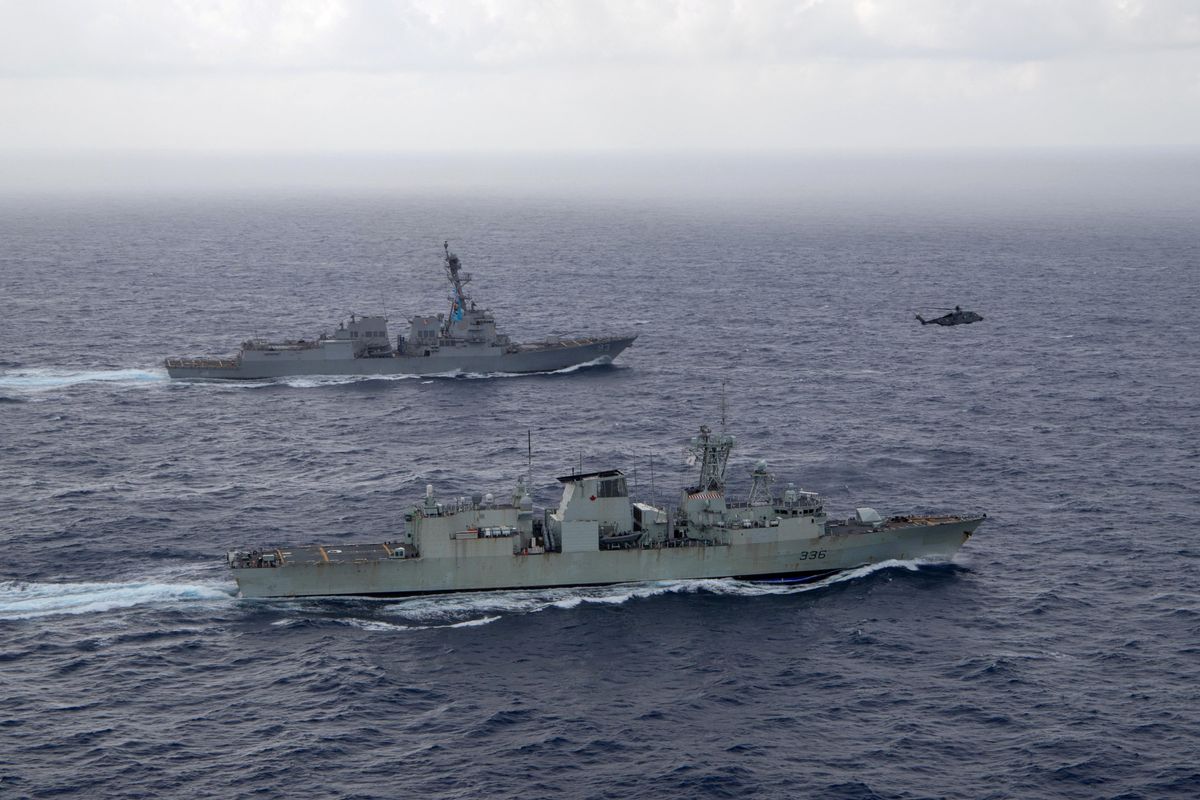This week, China sailed a warship very close to a US destroyer and a Canadian frigate transiting through the Taiwan Strait, which separates the Chinese mainland from the self-ruled island. The encounter follows a recent near-air collision between a Chinese fighter jet and a US spy plane over the South China Sea.
The US and Canada say they were conducting what is known in navy parlance as a Freedom of Navigation Operation or FONOP under the UN Convention on the Law of the Sea, which guarantees all ships the right to "innocent" passage. Yet for China, these actions are anything but innocent: FONOPs seek to provoke Beijing by sailing through disputed waters to challenge China's claims in the Taiwan Strait and the South China Sea, one of the world's busiest maritime shipping routes.
The buzzing incident also puts a spotlight on Canadian FONOPs in this part of the world, which are becoming more frequent as relations with China get frostier. (Interestingly, Canadians like doing FONOPs with Americans in China-claimed waters but not in the Arctic, where Ottawa and Washington have a beef over who controls the Northwest Passage.)
Still, by joining US-led FONOPs in testy Pacific waters, Canada risks getting caught in the crossfire of rising US-China tensions — especially over Taiwan. And the harder China pushes back, the bigger the odds of a miscalculation that could trigger an armed conflict.
"China doesn’t seem terribly worried about an accident," says Anna Ashton, Eurasia Group's top China analyst. Beijing "is probably hoping to intimidate the US, Canada, and other countries into conducting fewer transits and other activities in the Taiwan Strait and the South China Sea because that helps China assert greater de facto control over these regions."


















